Ex-UK consulate worker says he was tortured in China, protesters refuse to leave university campus
The UK has demanded answers after a former consulate workers in Hong Kong claimed Chinese police tortured him, as a group of protesters refuse to leave university campus. SEE THE PHOTOS
News
Don't miss out on the headlines from News. Followed categories will be added to My News.
A former employee of the British Consulate in Hong Kong says he was detained and tortured by Chinese secret police trying to extract information about massive anti-government protests in the territory.
Simon Cheng said in an online statement and media interviews that he was hooded, beaten, deprived of sleep and chained to an X-shaped frame by plainclothes and uniformed agents as they sought information on activists involved in the protests and the role they believed Britain played in the demonstrations.
Meanwhile, a small group of protesters have refused to leave a university in the city, the remnants of hundreds who took over the campus for several days.

British Foreign Secretary Dominic Raab summoned the Chinese ambassador in London to demand Beijing investigate.
“I summoned the Chinese Ambassador to express our outrage at the brutal and disgraceful treatment of Simon in violation of China’s international obligations,” Mr Raab said.
“I have made clear we expect the Chinese authorities to investigate and hold those responsible to account.”


Chinese police in August announced Cheng’s release after 15 days of administrative detention but gave no details of the reasons behind his detention.
China’s foreign ministry responded angrily to the allegations and the summoning of the ambassador.
Ambassador Liu Xiaoming will “by no means accept the so-called concerns or complaints raised by the British side”, ministry spokesman Geng Shuang said.
“The Chinese ambassador to the UK will lodge the complaints with the UK to express our strong opposition and indignation to the U.K.’s wrong words and deeds on Hong Kong in these days,” Mr Geng said.
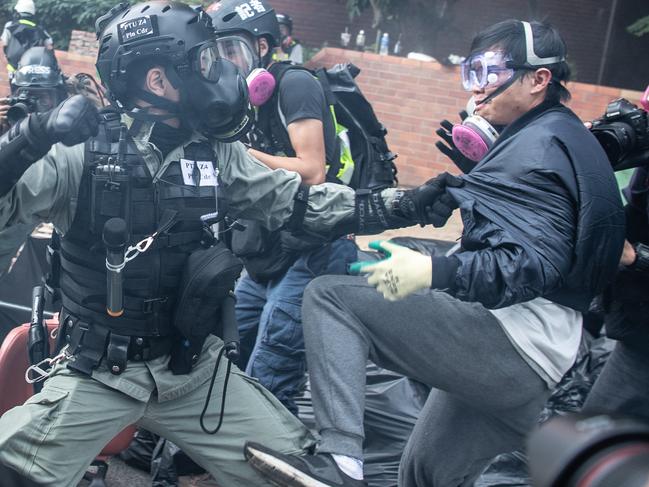
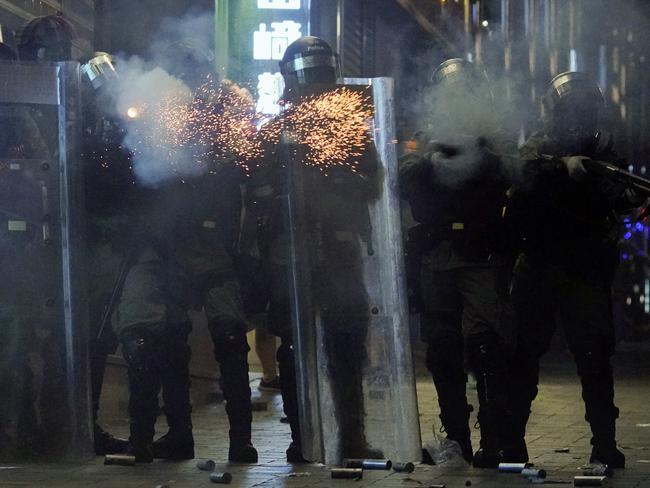
Mr Geng did not address Mr Cheng’s allegations directly, but cited a statement by Shenzhen police from August saying his lawful rights had been protected and that he had “admitted his offence completely,” an apparent reference to a confession of soliciting prostitution that Mr Cheng says was coerced.
Mr Cheng has strongly denied the charge.
Police in Shenzhen did not immediately respond to faxed questions about Mr Cheng’s allegations.
Mr Cheng worked for the consulate as a trade and investment officer with a focus on attracting Chinese investment in Scotland.
That required him to travel frequently to mainland China and he was detained at the border with Hong Kong after returning from a one-day business trip.
China says it doesn’t allow suspects to be tortured or make false confessions, although both practices are believed to be common.
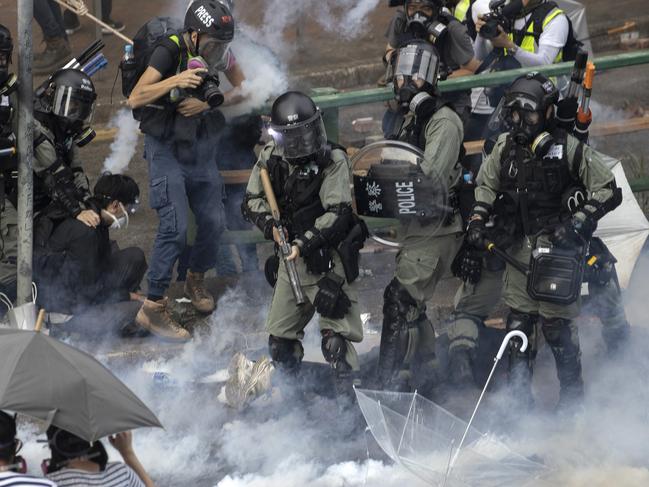
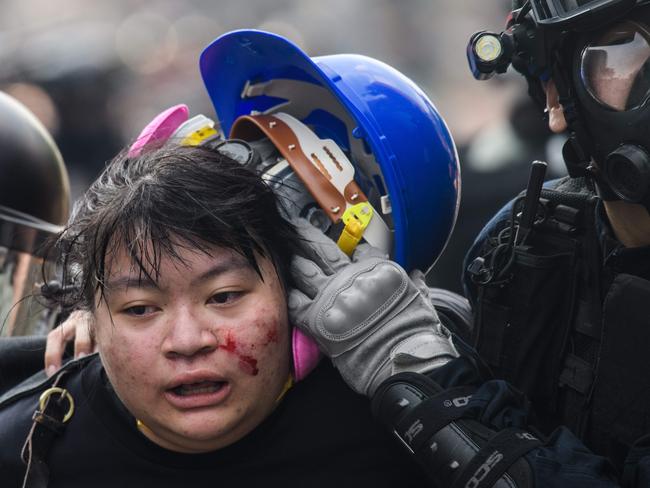

In his account on Facebook, Mr Cheng wrote that he had been asked about the supposed British role in the protests, his own involvement in them and mainland Chinese who joined in demonstrations.
China has long accused “anti-China foreign forces” of fomenting the protests, which have grown increasingly violent, without providing direct evidence.
LAST OF HK PROTESTERS HOLD OUT
Hong Kong schools have reopened after a six-day shutdown but students and commuters faced transport disruptions as the last anti-government protesters remained holed up on a university campus, surrounded by police.
City officials tried to restore a sense of normality as primary and secondary school classes resumed. Workers began cleaning up debris blocking a major road tunnel, but it was unclear when it would reopen.
Officials warned protesters not to disrupt elections scheduled for the weekend. A small group of protesters refused to leave Hong Kong Polytechnic University, the remnants of hundreds who took over the campus for several days. They will not leave because they would face arrest and police have set up a cordon around the area to prevent anyone from escaping.
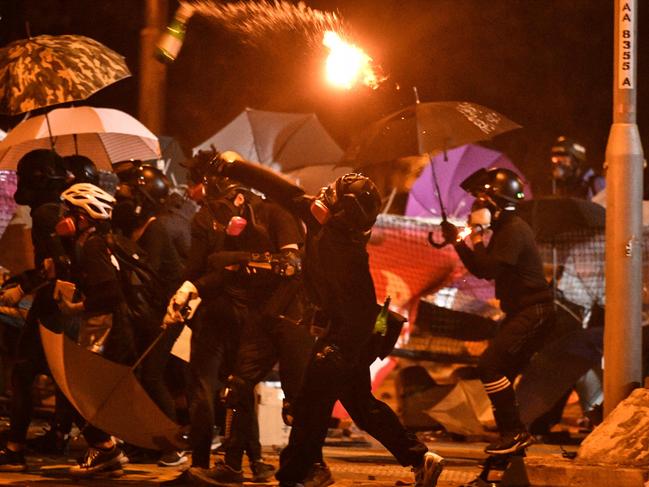
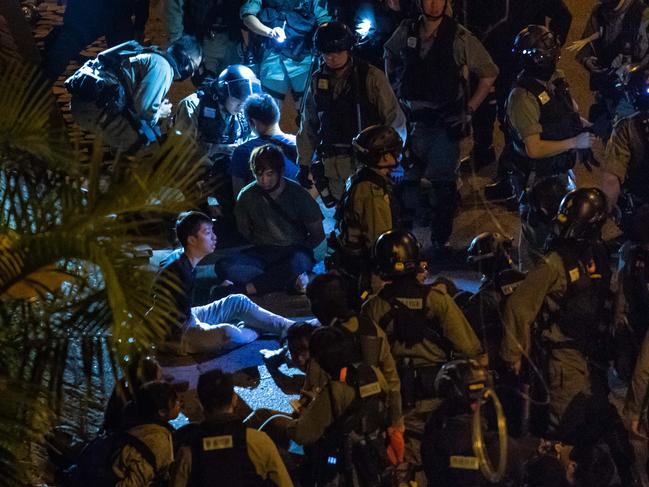
The occupation of Polytechnic capped more than a week of intense protests, the latest flare-up in the often-violent unrest that has gripped the semi-autonomous Chinese city for more than five months.
Since a police siege of the campus began on Sunday, officers have arrested 700 people who left to surrender while 300 minors were allowed to go home but may still face prosecution, Chief Superintendent Ricky Ho told reporters. Among those arrested were people involved in an apparent escape attempt through a sewer.
Ho said officers saw four people remove a manhole cover and lower a rope into the drain to help two others climb out. He said all were arrested but did not give further details.
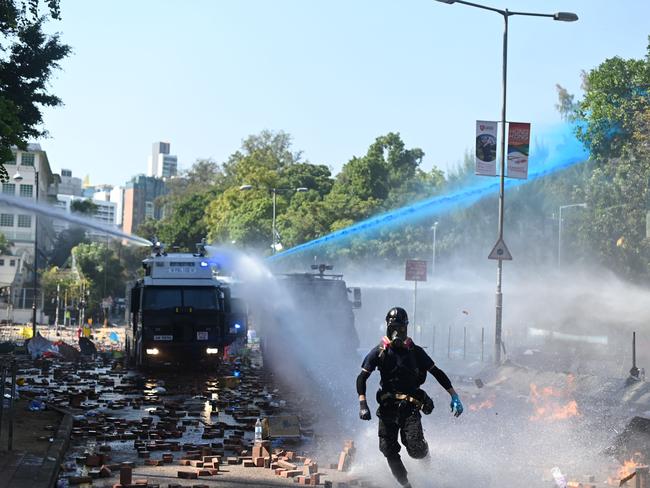
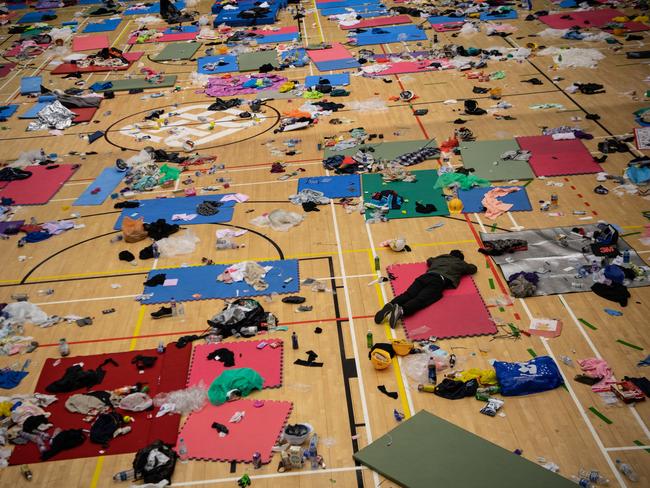
It is unclear how many protesters remain on campus, but they appear to number fewer than 100. About two dozen scrounged through supplies in the cafeteria looking for food in the morning.
One protester, who spoke on condition of anonymity, remained adamant, saying: “I think if you go out and surrender, it just hows you agree with what the police and that government are doing or have given up the fight.” There were scattered incidents of protesters stopping trains by opening emergency doors and blocking traffic, but on a much smaller scale than last week.
MORE NEWS
Andrew stepping back from royal duties
DJ: Kate told me off for mocking Charlotte
Aussies battle it out for Grammys
Television footage showed long queues at some stations because of train delays. A few stations remained shut by damage from earlier protests. A group of protesters, joined by pupils in uniform, blocked traffic at one junction. Others in the area argued with them, removing some of the metal barriers that protesters carried into the street.
Even as the latest violence wound down, a fundamental divide suggested the protests in the former British colony are far from over.
Office workers joined protesters at lunchtime in the central business district to show support for the movement, as they have every day since last week.
Originally published as Ex-UK consulate worker says he was tortured in China, protesters refuse to leave university campus
